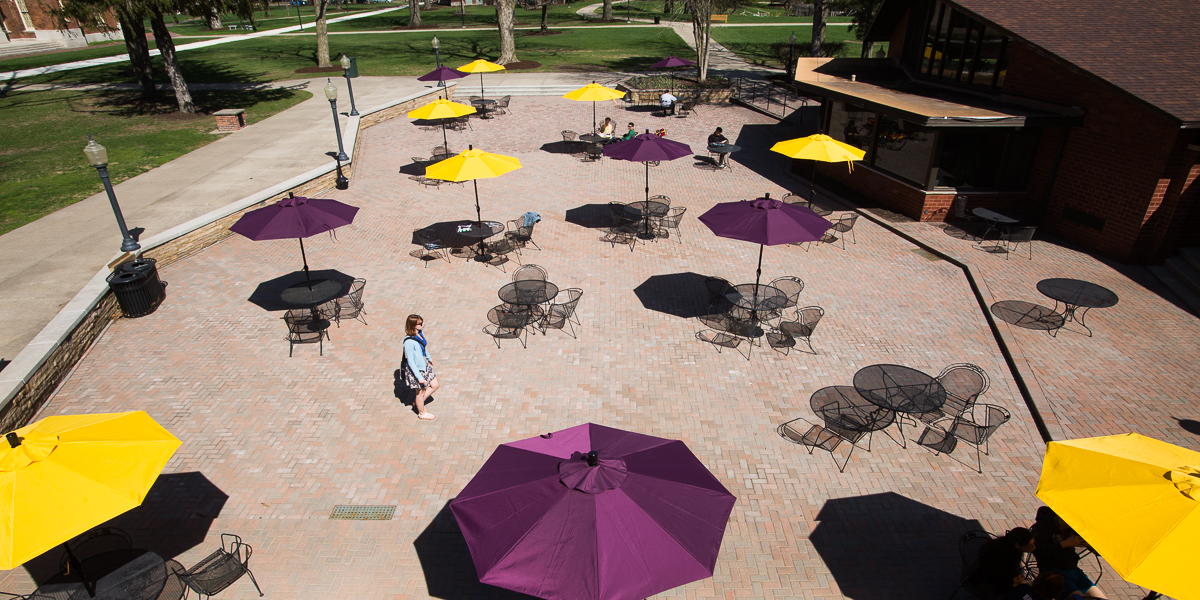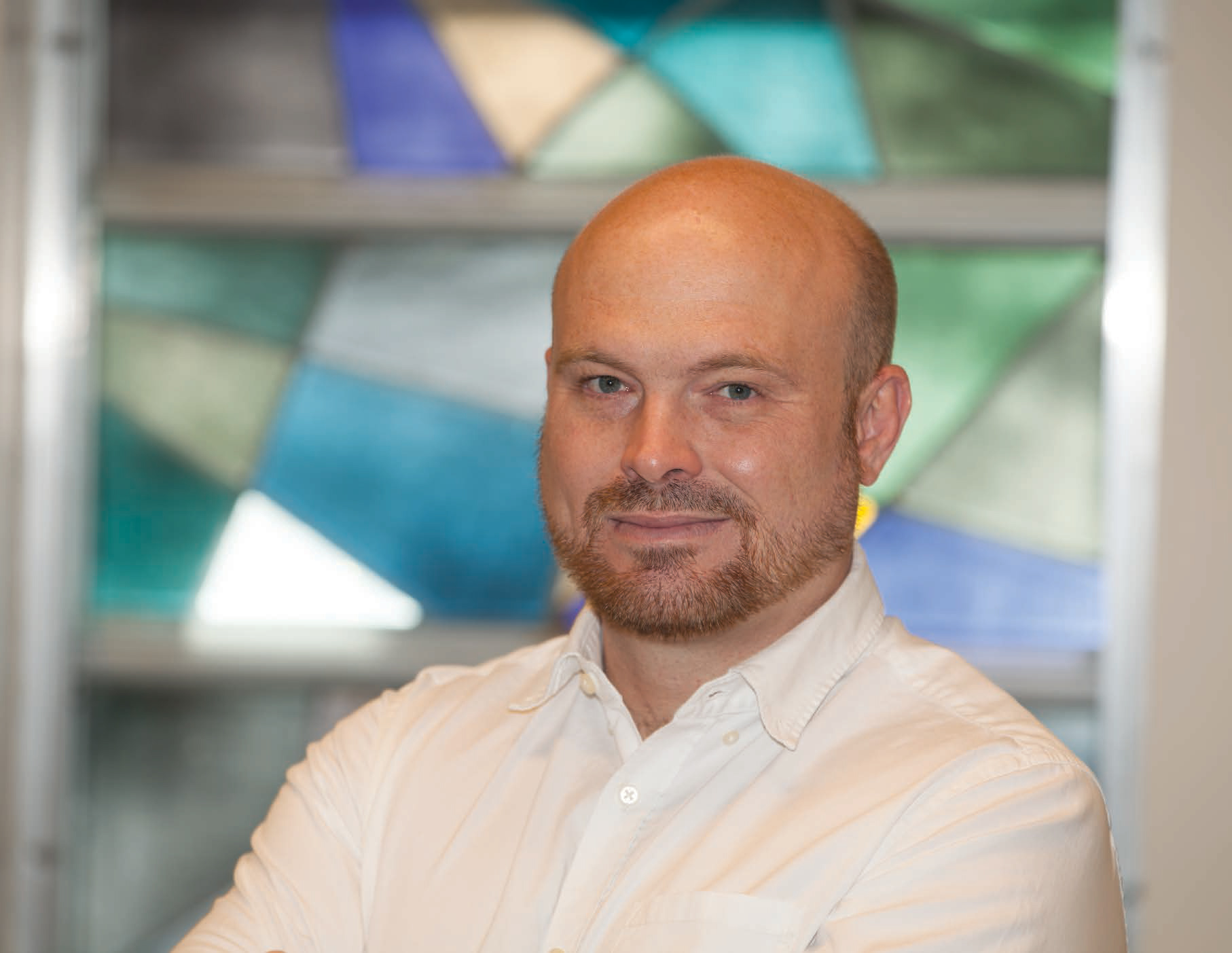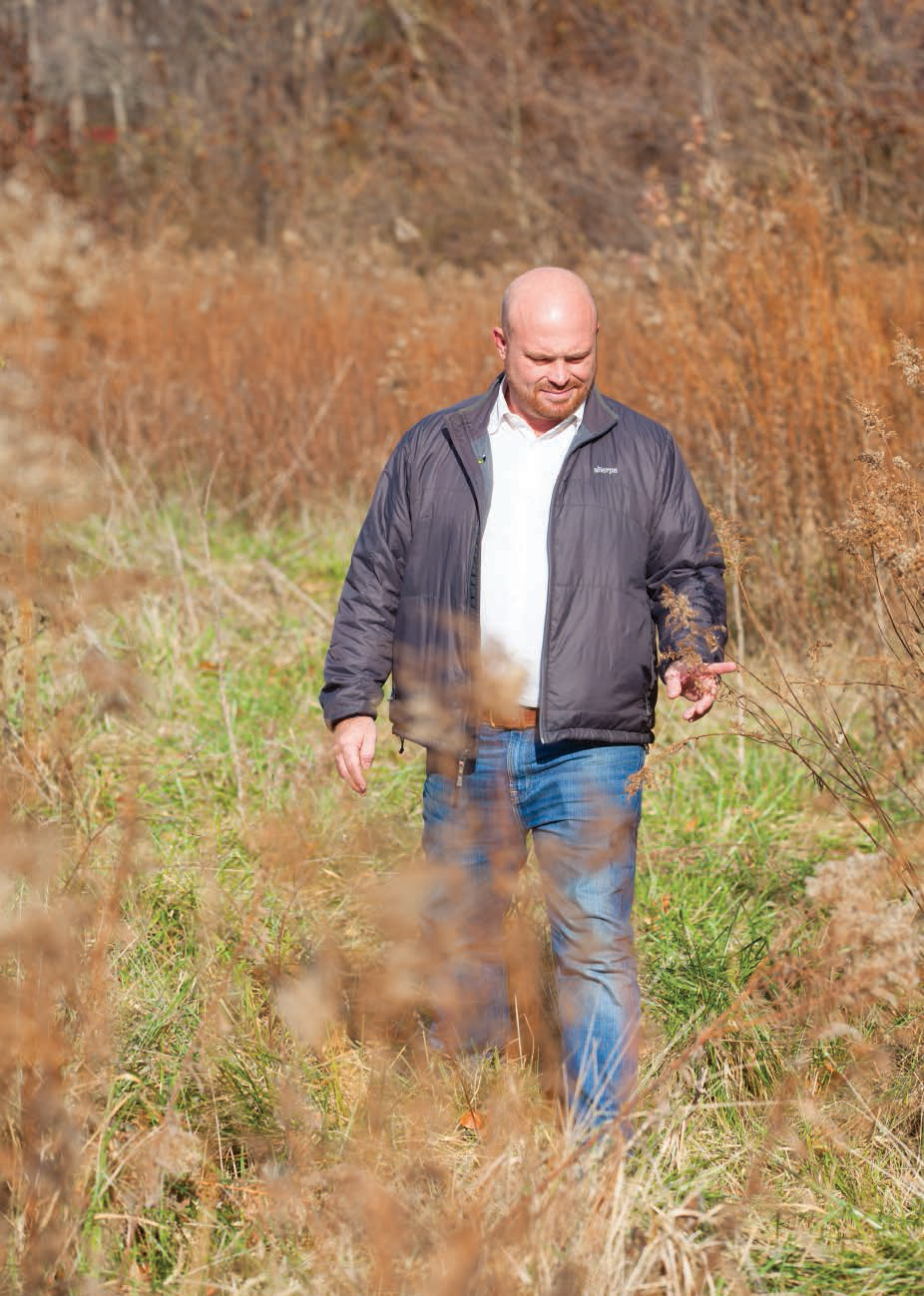

Venture Boldly


By Adriana Colindres
Photos by Randy Squires
Matt Berg '00 tackles some of the world's toughest and most complex challenges-like helping to stop the spread of Ebola-through the use of technology. How did he get where he is today?
As a Knox student, Matt Berg already pretty much knew what he wanted to do with his life: work with computers in Africa. That was before the advent of text-messaging and smart phones, tools now central to Berg's mission to help people in the developing world lead better, healthier lives through technology.
Berg has been utilizing his international problem-solving skills for years. "Basically, what I do is I apply technology to help address development challenges. That's probably the simplest way to describe what I've been doing with my life so far," he says.
"I get to work on some of the world's biggest challenges with some of the world's smartest and most dedicated people," Berg adds. "It's extremely fulfilling to see something you build be used around the world to make a difference."
Consider some of the projects Berg has been involved with in the past few years:
Berg's expertise in combining technology and international development has earned him recognition both within the Knox community and far beyond it. Just months after being selected for Knox's 2010 Young Alumni Achievement Award, he received a much bigger honor: a place among Time magazine's "100 Most Influential People in the World."
Time praised Berg's role in helping reduce child mortality rates through the ChildCount+ monitoring program. "As technology director for ChildCount+, he helps oversee a network of community-health workers who regularly examine local children, treat their ills and then text back the status of every sick child they find," the Time article states. "This allows for improved health monitoring, faster interventions, and better immunization and treatment campaigns."
Now, Berg is continuing with his work through Ona, a company he cofounded in 2013 with Ukang'a Dickson and two others. Ona, which has offices in Nairobi, Kenya, and New York, is a social enterprise technology company that assists non-governmental organizations and other groups with data collection and analysis. Ona's clients have included UNICEF, the World Bank, and the World Health Organization (WHO).
"At the root, we are a software startup -- something you'd expect to see maybe in Silicon Valley," says Berg. "We're doing it in Nairobi, Kenya, where we are developing a team of Kenyan software engineers and designers to develop world-class software."
In a recent project, Ona has been collaborating with WHO on responding to the Ebola crisis. Last fall, Berg spent a couple of weeks in Liberia, one of the countries experiencing an outbreak of the deadly disease.
"Primarily, we've been working with a group in the infection protection control. Basically, their job is to make sure that health workers who are working on the response -- whether it's WHO staff or whether it's local health workers -- stay safe," says Berg. "There's a lot of risk in treatment, so it's very important that the treatment centers follow a lot of proper guidelines to make sure there's no risk of exposure."
"In general, the tools that we've developed have been used by the government and by partners for data collection, using smart phones to help get more information about what's happening on the ground." While the average person in Africa doesn't have a smart phone, the devices are becoming more affordable, and development groups such as UNICEF or WHO easily can equip their staffs with what essentially are pocket computers for data collection, Berg says.
Some of the specific uses of his technology in Liberia allowed for:
The efforts by Berg and many others to ease the Ebola crisis appear to be succeeding. According to a New York Times article published January 31, 2015, the deadly epidemic is on the decline.
"New Ebola cases in Liberia, where streets were littered with the dead just a few months ago, now number in the single digits, according to the World Health Organization," the article states.

Whenever Ona takes on a project, whether it's the Ebola crisis or something else, there's no typical way of approaching it, says Berg.
"It really depends on the project. Usually it starts with a conversation with our partner on what problem they are trying to solve. We always try to start here before introducing the technology. It's very easy to fall into the trap of having a tool/technology looking for a problem," he explains.
"We help them develop a strategy on how to use technology to help improve what they are trying to do. This usually involves data. We then determine if the tools we have can be adapted [or improved] to meet their needs. Many times we also provide on-the-ground support, working with the partner to help design and implement a system we help to put in place."
Ona co-founder Ukang'a Dickson, who also is the company's director of engineering, describes Berg as "very passionate about the work he does."
"He understands the problems faced in the international development space and has a knack for how technology works," Dickson says, adding that Berg also understands how technology can improve people's lives.
"He values relationships he builds with the people he meets, wants to build bridges between people and between organizations," adds Dickson, who has worked with Berg since 2009. "He is passionate about technology in Africa and believes Africa does have the ability to make a contribution through code in changing the lives of people."
The work Berg does now is an outgrowth of his lifelong interest in Africa. Born in Cameroon, where his parents worked as missionaries, he grew up in Senegal before returning to the United States for high school.
"I'm very much American, but [Africa is] also just a huge part of my identity," says Berg. "I think it's an awesome place with a lot of challenges, but also a lot of huge opportunities."
Attracted to Knox because of its study abroad opportunities, Berg double-majored in computer science and integrated international studies, studied abroad in Zimbabwe, and completed an Honors project about technology in Africa. He credits Professors Roy Andersen and Robert Seibert '63 with "helping to cultivate a curiosity in the world I still draw upon." He also recalls that The Historian's Workshop course, taught by Professor Michael Schneider, "really shook up my world view."
People at Knox "always genuinely cared about my development," he says. "They let me believe that I could work with technology in Africa. That was a really big thing."
In addition, he says his friendships at Knox with students from Africa and other parts of the international community helped him retain his childhood roots. "Looking back, I think this was important, as it would have been easy to just go back to American life," Berg explains.
For now, his life and his work are in Africa, just as he'd hoped more than a decade ago when he was a Knox student. It's exactly what he wants.
"This is how I can have an impact, and it's fun," Berg says. "The tools we build help provide the information critical for making better-informed decisions that hopefully lead to more people living better lives. We help empower others to make a difference."